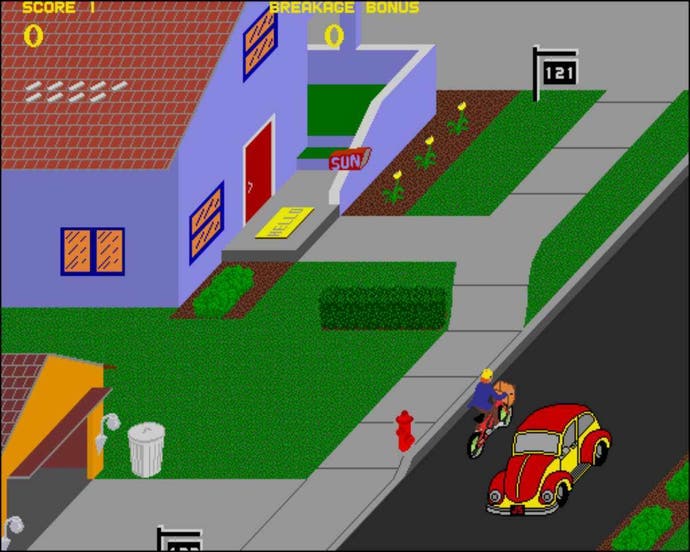Paperboy
Read all about it!
This game really had it all. By 1984, Atari was as close to a veteran as such a new industry could have, and it really understood the concept of digital entertainment.
Paperboy was a top laugh (that goes without saying), but it was also a brilliant and measured design success. Atari took everything it had learned about making first rate coin-ops and pilled its wealth of knowledge into this six-foot tall arcade champion. Exciting gameplay (that the staple arcade demographic of teenage boys could immediately identify with); vivid, detailed graphics; awesome music; and just enough of a proprietary edge to the machine to make Paperboy a truly unique experience.
Ripping up the isometric street on his BMX, there's no ambiguity about the gameplay of Paperboy; deliver papers to the subscribers on the street without falling off your bike. Here in the UK, paperboys (and girls, of course) never had the luxury of simply wazzing the newspaper at the customer's door (or through their window, at their dog, into their break lights or at the brawling drunks in the gutter), so making up for it in the arcades was a gift to increasingly fickle young gamers.

Topped off with a dynamic race through the BMX track at the end of the street, Paperboy played to the massive stunt bike riding trend permeating youth culture during the early '80s, further epitomising an entire generation's entertainment ethos in the gameplay of a single coin-op.
Only to be found in the classiest of arcades, the burgeoning trend for dedicated cabinets was never as beautifully realised as with Paperboy. Allowing for the established coin-op footprint while making use of a wicked BMX style handlebar controller in place of joysticks and buttons, there's never been a substitute for whipping rolled up newspapers through people's windows than on the original coin-op.







